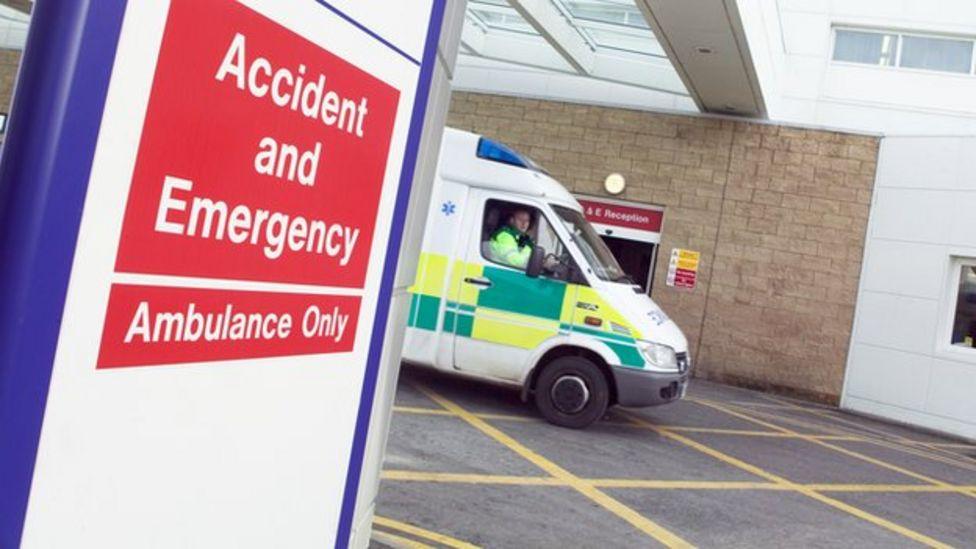Ambulance crisis: 'I thought my mum was going to die in front of us'
- Published
'Why did my mother have to lie waiting on an ambulance?'
An 86-year-old woman had to wait eight hours for an ambulance after falling and breaking her hip at home.
Lillian Briggs, who has Parkinson's, skin cancer and has had two heart attacks, was left lying on her kitchen floor in agony after blacking out.
Her son, Robert Ewing, and his sister rang for an ambulance a number of times only to be told their mother was in the system but was not a priority.
Mr Ewing told BBC Scotland: "I thought she was going to die in front of us."
The Scottish Ambulance Service apologised for the delay and confirmed it was investigating the circumstances.
Chief executive Pauline Howie told BBC Radio's Good Morning Scotland programme: "These waits are appalling and they are not something we aspire to as an ambulance service."
After receiving a call from his sister following his mother's fall in Edinburgh on Monday, the 60-year-old found his mother semi-conscious in a confused state.
His sister kept calling for an ambulance but after seven hours he called them himself and was told they knew about his mother, she was on the system and could he stop calling.
"I said hopefully you'll be here before my mother dies because my mum's in a bad way now," he said.
"I just held my mum's hand. She had a couple of bruises and a bashed face so I wiped her face and reassured her, put a cover over her to try to keep her warm as best I could - I couldn't move her because she was in a lot of pain - really bad pain.
"We aren't medically trained, we just did our best. My sister was getting more and more agitated and upset. My mum was getting worse, she was turning blue, her jaw was going, her breathing was getting shallower - she was in a bad state.
"I actually thought she was going to die in the house in front of us. Even now I can feel myself getting upset about it."
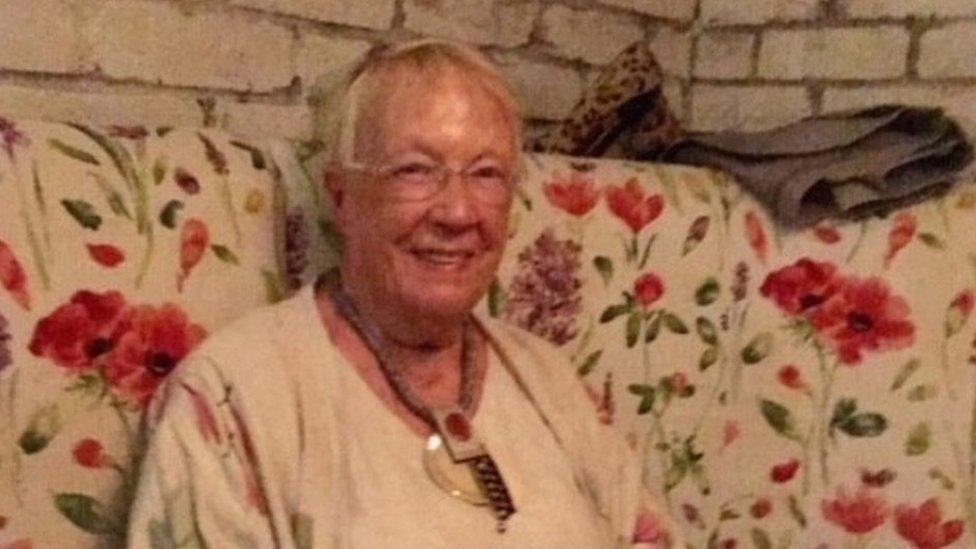
Lillian Briggs is currently in a stable condition in hospital

Mr Ewing added: "I'd heard stories about them having trouble emptying the ambulances at the Royal Infirmary but I thought after seven, eight hours, 'goodness, it can't take that long - surely she must be a priority by now'."
Mrs Briggs is now in hospital in a stable condition following surgery but is on oxygen after developing a chest infection.
Her case was raised during First Minister's Questions earlier on Thursday.
"Nicola Sturgeon says it's going to be fully investigated but what does that mean?," Mr Ewing said. "Is she going to get in touch with us and tell us why my poor mother had to lie there for eight hours?
"I just want a reason as to why she had to lie there for that amount of time in a critical condition because, as far as I'm concerned, a broken hip is a critical condition and she was in an awful lot of pain.
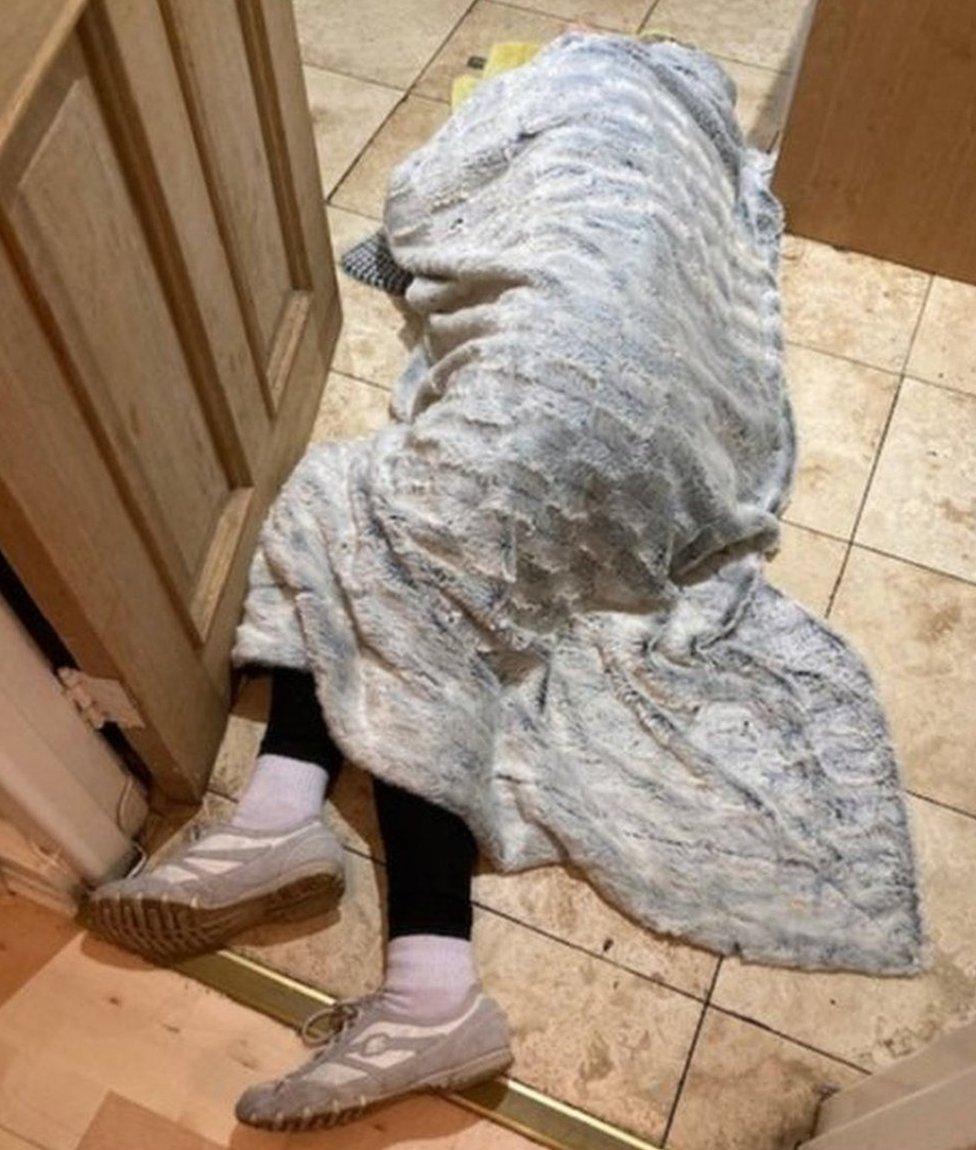
Lillian Briggs lay on her kitchen floor for eight hours waiting for an ambulance

"I just don't want others to go through what we had to suffer and what my mum is still suffering."
The Scottish government has now asked the MoD for military assistance for the country's ambulance service.
Nicola Sturgeon said health services were dealing with the most challenging combination of circumstances in their history due to the Covid-19 pandemic.
Opposition politicians have highlighted a series of serious ambulance delays, including one where a man died after a 40-hour wait.
Mr Ewing said getting military help could have happened sooner once the government knew Covid cases were rising and hospitals were getting busier again.
"Why didn't Nicola Sturgeon put in place a plan of action two or three weeks ago?," he said. "I don't think she would like her mother lying there in agony."
He said the first minister's apology to all those who had to wait for an ambulance was "just words".
Scottish Ambulance Service chief executive Pauline Howie was asked on Good Morning Scotland if the two cases highlighted in the media were "anomalies".
She said: "The vast majority of patients, for immediately life-threatening patients, will receive a response under 10 minutes and for other emergency patients, under 40 minutes."
The chief executive confirmed the service would apologise directly to the families and share the findings of its reviews into the circumstances.
Ms Howie also described the current pressures on the NHS as "unprecedented" and added staff face an "extremely challenging" winter.
Related topics
- Published16 September 2021
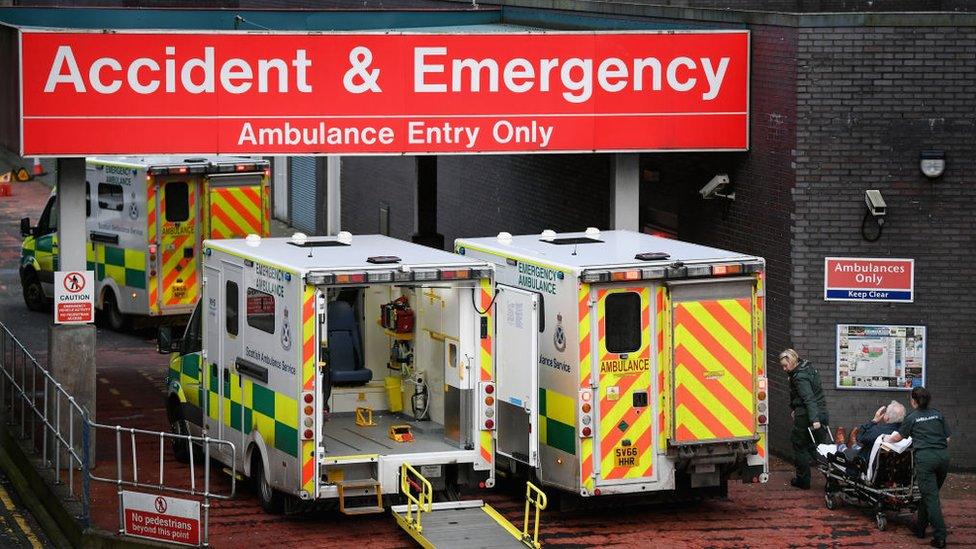
- Published14 September 2021
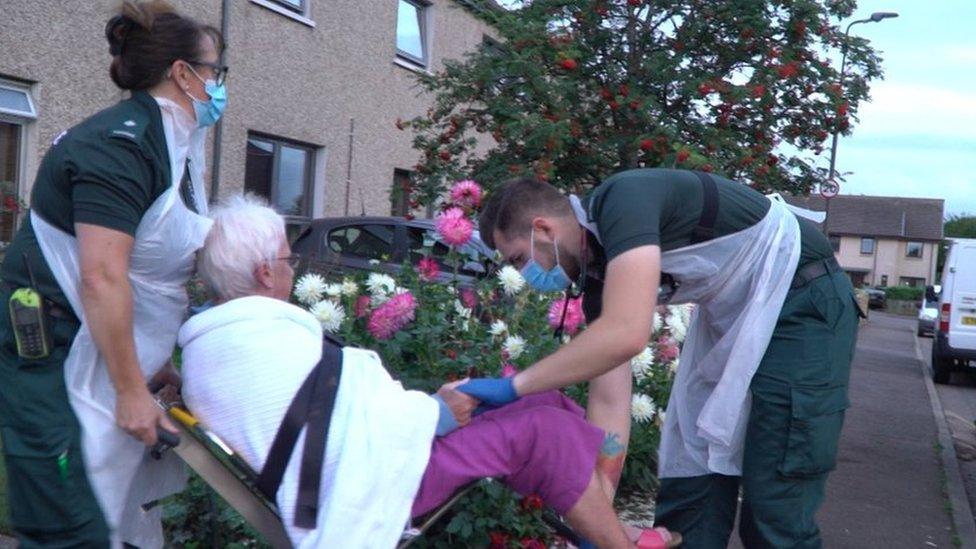
- Published15 September 2021
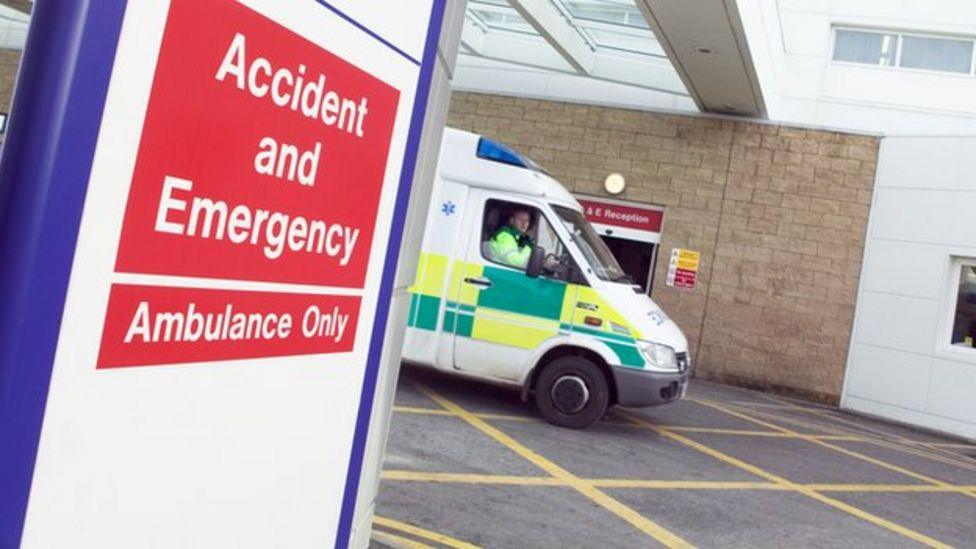
- Published10 September 2021
